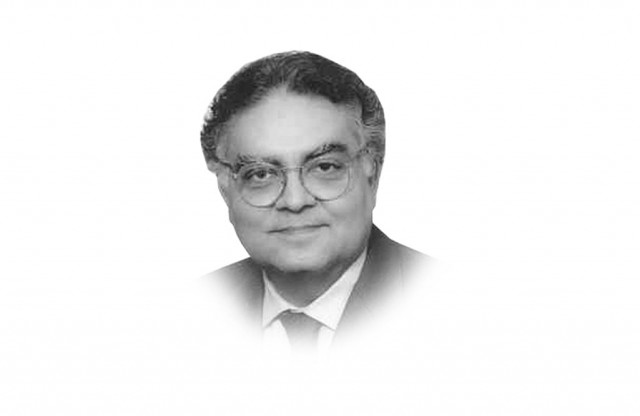Changing the policy paradigm
We arrive at a point when we can conduct our social, economic and political life on the basis of such policy paradigm.

The word paradigm, as used by the great philosopher of science Thomas Kuhn, refers to the basic assumptions within the ruling theory of science. In the context of social sciences, it is a fundamental framework of perception.
Pakistan’s policy paradigm has four main features:
(1) Governance, even within a democratic framework, aims to preserve the interests of the ruling elite and the associated upper income strata. The institutional framework of governance systematically excludes the majority of the people from participation in the process of decision-making, which affects their lives. Electoral support of most politicians is built on the basis of establishing individual domains of power. These are maintained within patron-client relationships, where state resources are channelled by those in power to their dependents.
(2) In the economy, just as in the sphere of politics, the interests of the elite must form the basis of policy, except as marginal handouts to the poor to keep ‘vote banks’ intact. The institutional structure of the economy accordingly excludes the majority of the people from generating high incomes, undertaking savings and investment, and hence participating as subjects in the process of economic growth. As a consequence, growth becomes unsustainable, dependent on foreign aid and mass poverty persists.
(3) In terms of foreign policy, India is seen as a permanent enemy and in this framework, the Kashmir border must be changed in Pakistan’s favour to complete the ‘unfinished business of Partition’. Accordingly, the trade-off between defence and development in budgetary allocations must always be resolved in favour of maintaining a large nuclear, conventional and asymmetric warfare capability. It is logical, therefore, to maintain ‘strategic assets’ of selected extremist groups as part of the defence inventory. It is equally logical in the context of the ‘basic assumption’ to conduct diplomacy with India with the primary objective of resolving the Kashmir dispute in Pakistan’s favour.
(4) In the realm of ideology, criticism of these basic postulates of policy would be regarded as unpatriotic. Similarly, any fundamental analysis of the processes of growth and governance must be rejected on grounds of being ‘theoretical’. The only acceptable economists or social scientists are those who are ‘technocrats’ — those who are willing to work within the existing policy paradigm. They provide quick fix solutions, which appear ‘practical’ to those in power because they do not require a structural change. This is inspite of the fact that these ‘practical’ policy proposals have a dubious analytical base and demonstrably continue to fail. The word ‘structure’ in this context refers to design features that determine the pace and pattern of economic growth. These design features are located in the institutional framework, wherein economic growth is conducted by the elite and for the elite.
The literature of the New Institutional Economics shows that states survive and prosper if they have ‘adaptive efficiency’ i.e., they change their model of reality either when the existing model has failed to deliver, or new circumstances arise. This is demonstrated in recent history by the contrasting fate of the Soviet Union and the United States respectively.
As Pakistan’s crisis of governance and economy reaches a point of inflection, it is time to change the policy paradigm — the one that regards greed as the basis of public action, affluence of the few at the expense of many as the hallmark of development, and an adversarial relationship with a neighbouring country as an emblem of patriotism. We have arrived at the end of the epoch when we can hope to conduct our social, economic and political life on the basis of such a policy paradigm.
Published in The Express Tribune, March 15th, 2011.














COMMENTS
Comments are moderated and generally will be posted if they are on-topic and not abusive.
For more information, please see our Comments FAQ